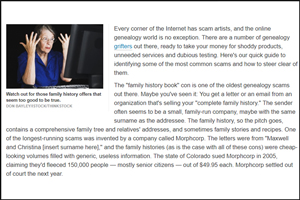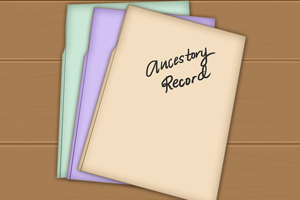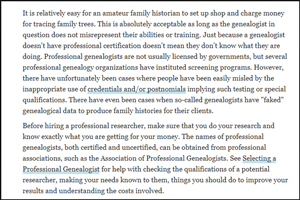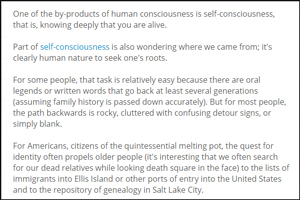Geneology Scam
Fronting scams, an emerging form of insurance fraud, are deceiving individuals and businesses by exploiting insurance procedures. Stay informed and safeguard yourself from these increasingly prevalent schemes.
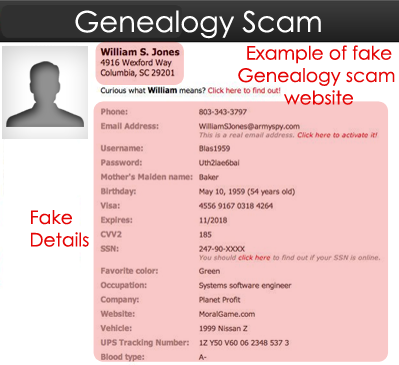 People delve into their genealogical backgrounds for various reasons, ranging from uncovering family histories, assessing the risk of hereditary diseases,
resolving land ownership disputes, to establishing verifiable family connections for potential heirs. The quest to discover one's lineage often leads individuals
to online genealogy websites, seeking clarity on their familial ties. While turning to these platforms might prove beneficial for those well-versed in the nuances
of internet scams, many remain vulnerable. In our technology-driven era, it's essential to approach such sensitive pursuits with caution and awareness to avoid
potential pitfalls.
People delve into their genealogical backgrounds for various reasons, ranging from uncovering family histories, assessing the risk of hereditary diseases,
resolving land ownership disputes, to establishing verifiable family connections for potential heirs. The quest to discover one's lineage often leads individuals
to online genealogy websites, seeking clarity on their familial ties. While turning to these platforms might prove beneficial for those well-versed in the nuances
of internet scams, many remain vulnerable. In our technology-driven era, it's essential to approach such sensitive pursuits with caution and awareness to avoid
potential pitfalls.
In today's digital age, the internet has unfortunately become a breeding ground for fraudsters, and even the realm of genealogy hasn't been immune. Genealogy scams, in particular, can be more insidious than many contemporary scams because they have the power to swindle individuals out of their hard-earned money or precious family heirlooms with just a single deceptive email. It's vital to remain vigilant and informed to protect oneself and one's heritage.
Beware of Counterfeit Genealogy Websites
Deceptive genealogy scammers often launch fraudulent websites aimed at extracting your personal and financial information. These con artists specifically target individuals passionate about tracing their lineage and lure them into registering on their spurious platforms. Registrants typically find themselves paying exorbitant fees for fabricated genealogical reports that, more often than not, lack any factual basis. Beyond monetary loss, these sites serve as data mines, gathering personal details which can then be used for identity theft. If you resist registering, these scammers might attempt a different tactic: reaching out via personal emails. They might spin tales about an ancestral inheritance or claim you're entitled to the estate of a distant relative from overseas. Usually, such conversations are anchored on the premise of you parting with money, either for registration fees or to process an inheritance that, unsurprisingly, never materializes.
A particularly concerning aspect of genealogy scams is that the email you might receive is likely being sent to hundreds of thousands of individuals worldwide who share your surname. Those who respond promptly are often the first to be deceived.
Identifying Heir Hunt Scammers
Legitimate genealogists typically avoid reaching out via email or online chats; instead, they might approach you in person, give you a call, or send a formal letter. They're often willing to provide comprehensive consultations before delving into the research and are open to face-to-face meetings. In contrast, online fraudsters avoid personal interactions at all costs. They typically request payments upfront for their services and later provide fabricated details about supposed ancestors – details that they have often concocted themselves.
Avoid Enticing Offers of Unexpected Inheritances
The allure of quick wealth often entices individuals into the web of genealogy scams. It's essential to recognize that unexpected windfalls, especially those communicated through unsolicited emails, often carry hidden pitfalls. It's prudent to remain skeptical of such tantalizing offers and to prioritize your safety by disregarding such unsolicited promises. This approach can help shield you from the deceptive tactics of genealogy scammers.

